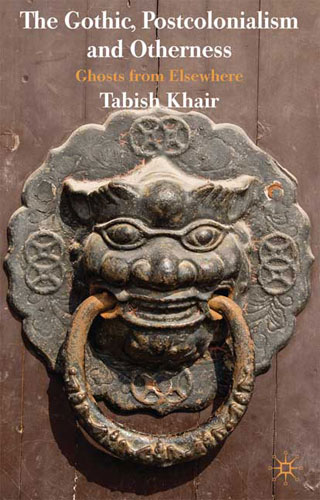.jpg) Judith Beveridge has published four books of poetry: The Domesticity of Giraffes (Black Lightning Press, 1987), Accidental Grace (UQP, 1996), Wolf Notes (Giramondo Publishing 2003), Storm and Honey (Giramondo Publishing 2009). She has won many awards for her poetry including the NSW Premier’s Award, The Victorian Premier’s Award and the Judith Wright Calanthe Award. In 2005 she was awarded the Philip Hodgins Memorial Medal for excellence in literature. She is currently the poetry editor for Meanjin and teaches poetry writing at postgraduate level at the University of Sydney.
Judith Beveridge has published four books of poetry: The Domesticity of Giraffes (Black Lightning Press, 1987), Accidental Grace (UQP, 1996), Wolf Notes (Giramondo Publishing 2003), Storm and Honey (Giramondo Publishing 2009). She has won many awards for her poetry including the NSW Premier’s Award, The Victorian Premier’s Award and the Judith Wright Calanthe Award. In 2005 she was awarded the Philip Hodgins Memorial Medal for excellence in literature. She is currently the poetry editor for Meanjin and teaches poetry writing at postgraduate level at the University of Sydney.
The Herons
Then the path wound down
to a browner place, to a river
where rain-grey herons slender as rushes
drifted off like camp-smoke.
I’ve only seen their colour
in a few opals baked deep in clay country.
When they stared, it was as if
their eyes carried on
through emanations.
One stood so peacefully
as if it saw and heard the single
far off, crystal note;
slender, rag-thin bird we called
blue Gotama. We crumbled a mushroom—
all we could call
sacred, yet common:
but they looked past all hungers.
So we trod quietly back,
left them sitting above the long
brown earthworm of the river
and our pile of useless
vegetable soil. They were
beautiful as blue veins in the wrists of monks
fasting for perfection.
The Caterpillars
On the headland to the lighthouse,
a brown detour of caterpillars
crimped end-to-end across the road.
Poke away the pilot and the line
would break up, rioting,
fingering for the scent.
Put him back, they’d straighten.
You could imagine them humming
their queue numbers.
I’ve only seen such blind following
in the patient, dull dole queues,
or old photos of the Doukhobors,
the world’s first march of naked people.
I watched over the line for hours
warding off birds whose wings, getting close,
were like the beating of spoons
in deep bowls. I put a finger to the ground
and soft prickles pushed over,
a warm chain of hair.
This strange sect, wrapped in the sun
like their one benefit blanket
marched in brotherhood and exile.
Later, a group of boys
(their junta-minds set on torture)
picked off the leader.
Each creature contorted,
shut into its tight burr.
I could only stand like a quiet picket
and watch the rough panic.
I remember them, those caterpillars,
pacifists following their vegetable passion—
lying down in the road and dying
when they could no longer touch each other.
Occasions of Snails
1
They slide out of the light
leave a chrome stain through shade on the brickpath.
Their excreta are milled like censer ash
as they wander aisles, scented paths,
crawl over ageing grasses,
bask in warm mud like the terribly poor.
They wander the earth
as if looking for St Francis of Assisi.
2
So many anonymous buds—
a bucketful from the lettuces and roses.
The colour of autumn’s loose litter—
they are aimless, evicted,
itinerant for the velvet luxury
of the orchid and lily.
3
The evening is cool, a cricket’s call
fills the ground like a slow cistern.
I bend close to the earth, watch a tiny snail
rock in the crib of a leaf.
A trail just visible where spiders are tooling lace.
It works the abrupt edge.
It is a couturier cutting away.
It will quickly feather this leaf.
4
As a child I squinted for their script.
I searched the vast twin prayeryards
of sunshine and wind.
I watched for their headlines
as if they were notices for the arrivals
and departures of angels;
as if they were the proof—
beautiful and brief—of anonymous flights
scrawled across the house-walls, down ditches,
on uncut grasses, on a splintery fence;
as if they were the tinsels of a local moon.
5
Now I am a gardener.
I make their landscapes deadly.
I make Golgothas in the garden.
And I have laid my poisons—
the mockery of diced stems.
6
I have pressed them to the earth.
I have trowelled them into the soil.
I have riveted their pastel to the bricks.
I have denied them soft altars, plush roads,
these trackers of unattainable softness,
these evacuees of needle-thin tracks
who never look back on their painstaking silver.
7
But look how they go—
beseeching the deities Gloss
and Lightheadedness; how they stroll
amongst mucilage and essences
as if in mystical consortium
with nasturtium and rose—
how they find the sane bewilderment
of a child wandering in her garden
with a rose in her head.
She curses her brothers
who drop them on cactuses,
turn them into sludge
and laugh them into sad weak bubbles.
Still, she remembers the hiss
of so many tossed into the ash.
Those winkled from their sockets by twigs.
8
Sometimes, when I hold them,
when they are immured
and smelling of lavender;
when they turn their dibbled heads
from my palms, I remember
those soldered paths
and this world’s exotic itinerary.
Again, I track their rubbled passages
(to the roses, to the compost).
They have crawled into eggshells
as if into temples, as if into light.
How to Love Bats
Begin in a cave.
Listen to the floor boil with rodents, insects.
Weep for the pups that have fallen. Later,
you’ll fly the narrow passages of those bones, but for now—
open your mouth, out will fly names
like Pipistrelle, Desmodus, Tadarida. Then,
listen for a frequency
lower than the seep of water, higher
than an ice planet hibernating
beyond a glacier of Time.
Visit op shops. Hide in their closets.
Breathe in the scales and dust
of clothes left hanging. To the underwear
and to the crumpled black silks—well,
give them your imagination
and plenty of line, also a night of gentle wind.
By now your fingers should have
touched petals open. You should have been dreaming
each night of anthers and of giving
to their furred beauty
your nectar-loving tongue. But also,
your tongue should have been practising the cold
of a slippery, frog-filled pond.
Go down on your elbows and knees.
You’ll need a speleologist’s desire for rebirth
and a miner’s paranoia of gases—
but try to find within yourself
the scent of a bat-loving flower.
Read books on pogroms. Never trust an owl.
Its face is the biography of propaganda.
Never trust a hawk. See its solutions
in the fur and bones of regurgitated pellets.
And have you considered the smoke
Yet from a moving train? You can start
half an hour before sunset,
but make sure the journey is long, uninterrupted
and that you never discover
the faces of those trans-Siberian exiles.
Spend time in the folds of curtains.
Seek out boarding-school cloakrooms.
Practise the gymnastics of wet umbrellas.
Are you
floating yet, thought-light,
without a keel on your breastbone?
Then, meditate on your bones as piccolos,
on mastering the thermals
beyond the tremolo; reverberations
beyond the lexical.
Become adept
at describing the spectacles of the echo—
but don’t watch dark clouds
passing across the moon. This may lead you
to fetishes and cults that worship false gods
by lapping up bowls of blood from a tomb.
Practise echo-locating aerodromes,
stamens. Send out rippling octaves
into the fossils of dank caves—
then edit these soundtracks
with a metronome of dripping rocks, heartbeats
and with a continuous, high-scaled wondering
about the evolution of your own mind.
But look, I must tell you—these instructions
are no manual. Months of practice
may still only win you appreciation
of the acoustical moth,
hatred of the hawk and owl. You may need
to observe further the floating black host
through the hills.
Death
Something’s dead in that stand of trees.
Vultures circle and swoop.
Flies fresh from the herds
hum around my head.
I watch the maggots rise, cooking up.
Ants in tiny rows keep convoying
skin, tissue.
Even the moon can’t keep itself clean:
soap soiled by a dung-collector’s hands.
The carcass is a spotted deer’s.
Only yesterday, perhaps,
it was grazing among the trees,
its hide so much the colour of the trunks,
it would seem to be hardly there.
How many years have I journeyed?
Time. So much its own colour.
Death in every stand of trees.
In the Forest
So long in this forest—I hardly remember
my home. Though sometimes when I see
the pink reach of lotuses—I remember
the underside of my mother’s hands.
And sometimes, when I see a scorpion
jack up the green stinger of its tail,
do I think of my father’s lithe thumb,
gesturing. Sometimes the wing of an
insect, weighing no more than two
layers of lacquer, will make me count
how often I saw Yasodhara’s face
under the sky’s veneer. I’ve seen so
many lives born outside of reason; little
antennas poking through their cocoons.
Now, a praying mantis strokes the air
with a casual feeler, then tenses its legs
against the weather. How long will it sit
folded in upon itself, brave petitioner?
All day I bow to these creatures—
those who wait their cycles out more
devoutly than moons. But sometimes,
watching a butterfly emerge, I sense
my own eyelids flutter in the strange
puparium of a dream. O, I don’t know
if I’ll ever wake, changed, transformed,
able to lift on viridescent wings.
But as I watch, I feel my mind enter
a vast space in which everything
connects; and a grasshopper on a blade
of grass listens intently with its knees.
The Lake
At dusk she walks to the lake. On shore
a few egrets are pinpointing themselves
in the mud. Swallows gather the insect lint
off the velvet reed-heads and fly up through
the drapery of willows. It is still hot.
Those clouds look like drawn-out lengths
of wool untwilled by clippers. The egrets
are poised now—moons just off the wane—
and she thinks, too, how their necks are
curved like fingernails held out for manicure.
She walks the track that’s a draft of the lake
and gazes at where light nurses the wounded
capillaries of a scribbly gum. A heron on one leg
has the settled look of a compass, though soon,
in flight, it will have the gracility of silk
when it’s wound away. She has always loved
the walks here, the egrets stepping from
the lute music of their composure, the mallards
shaking their tails into the chiffon wakes,
the herons fletching their beaks with moths
or grasshoppers, the ibis scything the rushes
or poking at their ash-soft tail feathers.
Soon the pelicans will sail in, fill and filter
the pink. Far off, she can see where tannin
has seeped from the melaleucas, a burgundy
stain slow as her days spent amongst tiles and
formica. She’s glad now she’s watching water
shift into the orange-tipped branches of a
she-oak, a wren flick its notes towards the wand
of another’s twitching tail. There’s an oriole
trilling at the sun, a coveted berry, a few
cicadas still rattling their castanets. She loves
those casuarinas, far off, combed and groomed,
trailing their branches: a troupe of orang-utans
with all that loping, russet hair; and when
the wind gets into them, there’s a sound as if
seeds were being sorted, or feet shuffled amongst
the quiet gusts of maracas. Soon the lights on
the opposite shore will come on like little
electric fig seeds and she will walk back
listening to frogs croak in the rushes, the bush
fill with the slow cisterns of crickets, her head
with the quiet amplitude of—Keats perhaps,
or a breeze consigning ripples to the bank;
the sun, an emblazoned lifebuoy, still afloat.
The Shark
We heard the creaking clutch of the crank
as they drew it up by cable and wheel
and hung it sleek as a hull from the roof.
Grennan jammed open the great jaws
and we saw how the upper jaw hung from
the skull. We flinched at the stench of blood
that dripped on the fishhouse floor, and
even Davey – when Grennan reached in
past the scowl and the steel prop for the
stump – just about passed out. The limb’s
skin had already blanched, a sight none
of us could stomach, and we retched
though Grennan, cool, began cutting off
the flesh in knots, slashing off the flesh
in strips; and then Davey, flensing and
flanching, opened up the stomach and
the steaming bowels. Gulls circled like
ghouls. Still they taunt us with their cries
and our hearts still burn inside us when
we remember, how Grennan with a tool
took out what was left of the child.
Hooks
I’m sorting out the hooks in Grennan’s big old tackle box.
I pick one from the box. It has a sliced
shank, a rolled-in sports point, a wide gape and long bite.
I like the ones too whose points lie offset from their shanks
and those with sinkers like fisheyes
moulded onto them. This hook with a corroded point
and rusting suicide barb I name wild-beaked bait-giver.
This hook looks like the neck
of a little egret when the wind lifts a wisp of feathers
from its nape. This hook has a kinked shank and sickle
curve, so I call it ibis leaning
over the shallows. These two forged-silver, light-wired
bait-holders brazed together beautifully I call greenshanks
in flight. I know Grennan and Davey
would think I’m silly naming these old hooks, but what
else is there to do when you’re stuck in a boathouse, no fish
running, when the hooks’ real names
Sproat, Sneck, Big Bend, Model 20R are just not poetry.
Appaloosa
I have always loved the word guitar
David St. John
I have never been bumped in a saddle as a horse springs
from one diagonal to another,
a two-beat gait light and balanced
as the four-beats per stride become the hair-blowing,
wind-in-the-face, grass-rippling,
muscle-loosening, forward-leaning
exhilaration of the gallop.
And I have never counted the slow four-beat pace
of distinct, successive hoofbeats
in such an order as to be called The Walk.
Or learned capriole, piaffe, croupade in a riding school,
nor heard the lingo of outback cattle-cutters
spat out with their whip-ends and phlegm.
I have never stepped my hands over the flanks
of a spotted mare, nor ridden a Cleveland Bay
carriage horse, or a Yorkshire coach horse,
a French Percheron with its musical snicker,
or a little Connemara, its face buried
in broomcorn, or in a bin of Wexford apples.
I have never called a horse Dancer, Seabiscuit, Ned,
Nellie, Trigger or Chester, or made clicking noises
with my tongue during the fifty kilometres
to town with a baulking gelding and a green
quartertop buggy. Nor stood in a field while
an old nag worked every acre
only stopping to release difficult knobs of manure
and swat flies with her tail. And though I have
waited for jockeys at the backs of stables
in the mist and rain, for the soft feel of their riding silks
and saddles, for the cool smoke of their growth-stunting
cigarettes, for the names of the yearlings
and mares they whisper along with the names
of horse-owning millionaires – ah, more, more even
than them – I have always loved the word appaloosa.
 Mehnaz Turner was born in Pakistan and raised in southern California. She is a 2009 PEN USA Emerging Voices Fellow in poetry. Her story, “The Alphabet Workbook”, is forthcoming in the August 2010 issue of Ellery Queen Mystery Magazine. Her poems have appeared in publications such as Asia Writes, The Journal of Pakistan Studies, Cahoots Magazine, The Pedestal Magazine, Desilit Magazine, and An Anthology of California Poets. She is currently at work on her first poetry manuscript, Tongue-tied: A Memoir in Poems. To learn more about Mehnaz, visit her at www.mehnazturner.blogspot.com
Mehnaz Turner was born in Pakistan and raised in southern California. She is a 2009 PEN USA Emerging Voices Fellow in poetry. Her story, “The Alphabet Workbook”, is forthcoming in the August 2010 issue of Ellery Queen Mystery Magazine. Her poems have appeared in publications such as Asia Writes, The Journal of Pakistan Studies, Cahoots Magazine, The Pedestal Magazine, Desilit Magazine, and An Anthology of California Poets. She is currently at work on her first poetry manuscript, Tongue-tied: A Memoir in Poems. To learn more about Mehnaz, visit her at www.mehnazturner.blogspot.com
.jpg)
.jpg)
.jpg)
.jpg)
.jpg)
.jpg)
 Angelina’s publications include short stories in Muse and AntiTHESIS
Angelina’s publications include short stories in Muse and AntiTHESIS.jpg)
.jpg)